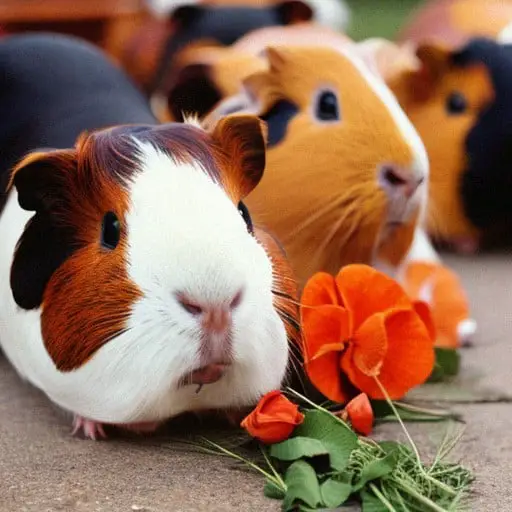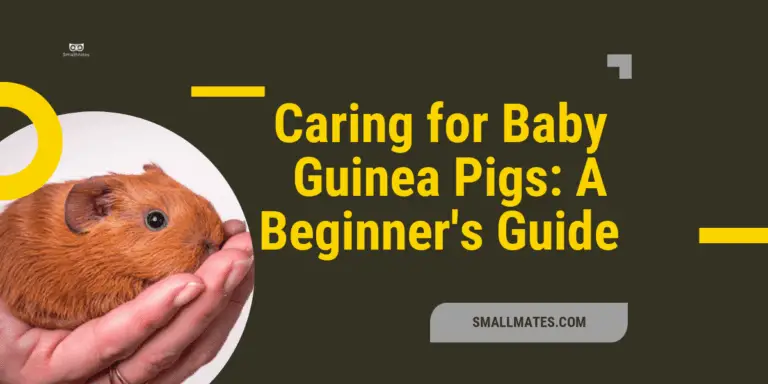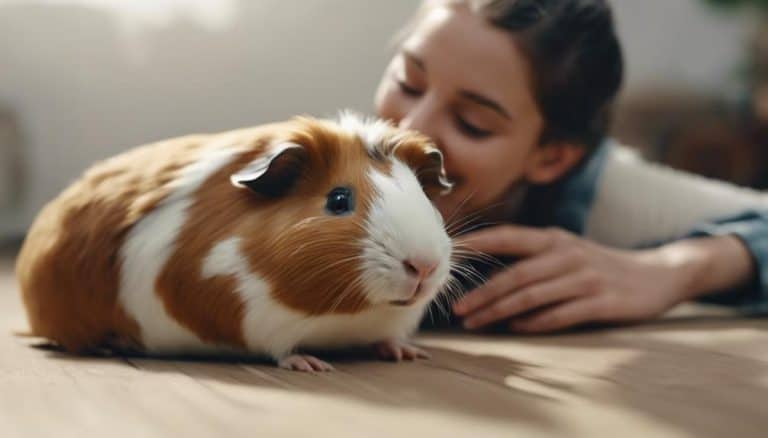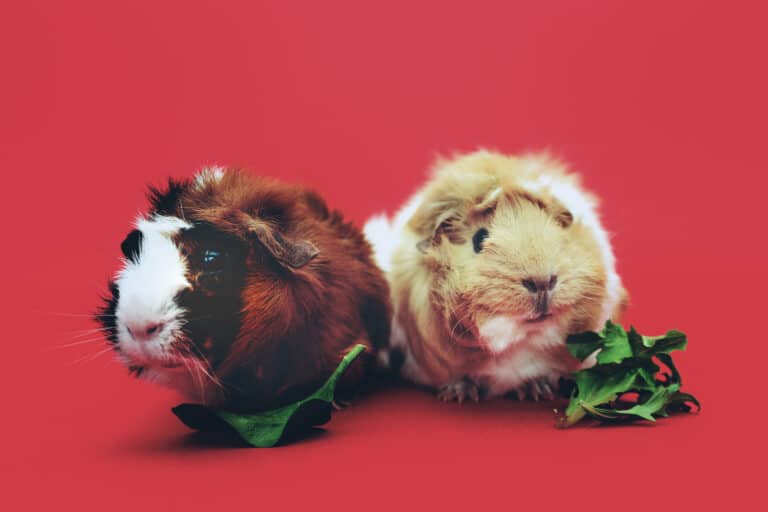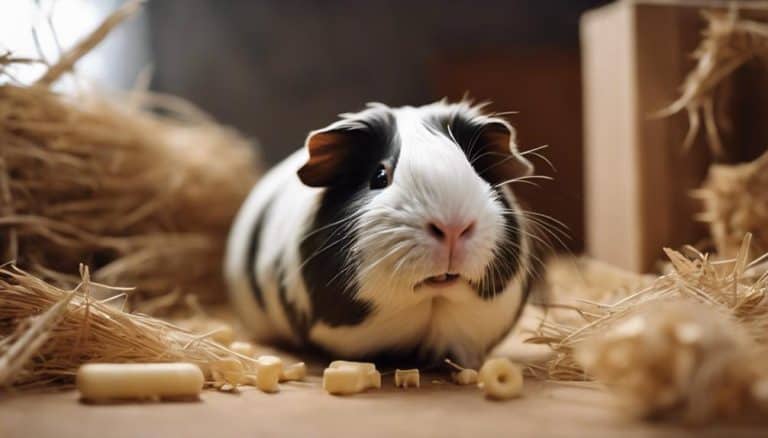Exploring the Consequences: Can Guinea Pigs Be Released into the Wild?
Exploring the Consequences: Can Guinea Pigs Be Released into the Wild? The issue of releasing domesticated animals into their natural habitats poses a multitude of ethical and environmental questions. Among these creatures are guinea pigs, beloved pets found in households around the world.
While they may seem harmless and adorable, contemplating whether or not guinea pigs can thrive outside our homes warrant deeper examination. In this article, we delve into the potential consequences that arise when considering setting free these captivating rodents into unfamiliar territories. From ecological disruptions to threats against native species, wildlife enthusiasts and pet owners alike seek answers regarding the viability of introducing this cuddly companion animal into ecosystems where it does not naturally belong.
By exploring scientific research, expert opinions, and real-life case studies on both sides of this divisive topic, we aim to shed light on the implications behind such actions. Ultimately, weighing ethics against environmental concerns will help us form an informed perspective on whether it is responsible or reckless to release our cherished guinea pigs back into the wilds from which their ancestors came.
The Ecological Impact of Released Guinea Pigs
1. Habitat Destruction: When released into the wild, guinea pigs can disrupt natural ecosystems by causing habitat destruction. Their burrowing behavior can damage plants and vegetation, altering the landscape and potentially leading to soil erosion.
2. Competition for Resources: Guinea pigs are herbivores that consume large quantities of vegetation, which can result in competition for limited food resources with native species. This increased competition may negatively impact local wildlife populations and disrupt the balance of the ecosystem.
3. Spread of Diseases: Domesticated guinea pigs might carry diseases or parasites that can be transferred to native animals when released into their habitats. These diseases could pose significant risks to indigenous species that may have no immunity against them.
In summary, releasing guinea pigs into the wild can have ecological consequences such as habitat destruction, increased competition for resources, and potential spreading of diseases. Considering these factors is essential before making any decisions about releasing guinea pigs outside of a controlled environment.
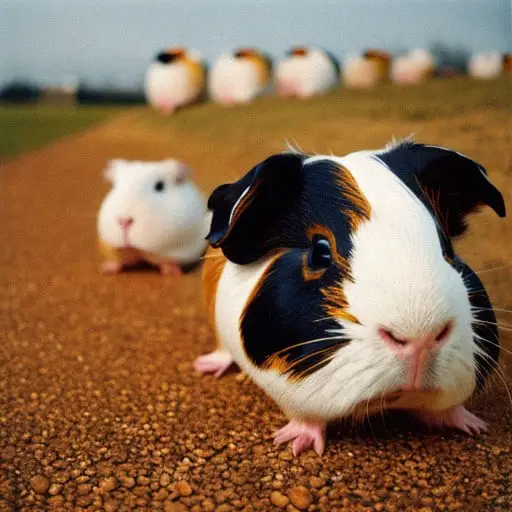
Risks to Native Wildlife and Ecosystems
Introducing guinea pigs into the wild poses significant risks to native wildlife and ecosystems.
- Competition for resources: Guinea pigs could compete with indigenous species for limited food sources, such as vegetation or small insects.
- Predator-prey relationships: Guinea pigs lack natural predator instincts, making them easy prey for animals accustomed to hunting smaller mammals. Additionally, if released in an area without their usual predators, their population may explode unchecked—disrupting the balance within the ecosystem.
- Potential disease transmission: Wild populations might not have immunity to diseases carried by captive-bred guinea pigs. This increases the risk of new diseases spreading rapidly among native species.
In summary, releasing guinea pigs into the wild can result in negative consequences for both native wildlife and overall ecosystem stability. It is crucial to consider these potential risks before taking any actions that could harm already fragile habitats.
Please Note: These are just a few examples of potential risks associated with introducing guinea pigs into non-native environments. The list is not exhaustive but serves as a starting point for understanding why caution must be exercised when considering releasing domesticated animals into the wild
Challenges Faced by Released Guinea Pigs
Releasing guinea pigs into the wild poses various challenges for these domesticated animals. Here are some key points to consider:
- Survival: Domestic guinea pigs lack necessary survival skills, leaving them vulnerable when released into unfamiliar environments. They may struggle to find food and water sources or fail to defend themselves against predators.
- Competition: Releasing guinea pigs can disrupt local ecosystems as they compete with native wildlife for resources such as food, nesting spaces, and mates. This competition can lead to negative consequences for both the guinea pig population and indigenous species.
- Disease transmission: Released guinea pigs may carry diseases that could be harmful to both other animals and humans in their new habitat. Additionally, introducing non-native pathogens could impact the health of local wildlife populations.
Finding a Solution
Given these challenges, it is crucial to approach the release of domesticated pets like guinea pigs responsibly. Seeking alternative options such as adoption through reputable animal shelters or finding suitable homes with experienced pet owners provides a more compassionate solution that avoids potential harm caused by releasing them into the wild.
Alternatives to Releasing Guinea Pigs into the Wild
Finding Safe Homes for Guinea Pigs
- One alternative to releasing guinea pigs into the wild is finding safe, permanent homes for them. This can be done by reaching out to local animal rescue organizations or adoption agencies that specialize in small pets like guinea pigs.
- These organizations typically have experienced staff who can provide the proper care and attention that these animals need, ensuring their well-being and safety.
- By finding a new home for your guinea pig, you are not only protecting it from potential dangers in the wild but also giving it a chance at a happy and healthy life.
Surrendering Guinea Pigs to Animal Shelters
- Another option is surrendering your guinea pig(s) to an animal shelter. Many shelters have specific areas or facilities dedicated to housing small mammals like guinea pigs.
- Animal shelters often have veterinary services on-site, which means they can provide necessary medical care if your guinea pig requires treatment or medication.
- Surrendering your pet to an animal shelter ensures that professionals will look after its needs while they search for a suitable forever home.
Working with Guinea Pig Rescue Organizations
- Guinea pig rescue organizations focus solely on rescuing and rehoming these small animals. They may operate through volunteer networks and foster homes rather than traditional shelters.
- These specialized groups possess expertise in handling and caring for guinea pigs, allowing them to successfully find suitable adopters who understand the specific needs of these pets.
- Collaborating with a reputable rescue organization guarantees that your guinea pig(s) will receive appropriate care until they find loving homes.

